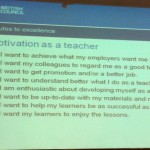After lunch, the symposium participants were split to join the following workshops for 90 minutes, they prepared the summary of their workshops and came back with two questions to the panel.
 The first workshop presentation was on In-Service training in Different countries led by Tim Phillips. the session started with a discussion on the Purpose of the In-service Training:
The first workshop presentation was on In-Service training in Different countries led by Tim Phillips. the session started with a discussion on the Purpose of the In-service Training:
The place where you’re in this continuum of To become the best I can be and To become what is required affects the “motivation” you have.
The workshop participants discussed the following questions about INSETTS:
•What is the purpose of INSETT?
•What are the factors for success?
•What are the similarities and differences between Turkey and Ukraine?
•What are the issues in INSETT?
The following points were listed as factors that affect the succes of the In-Service Teacher Training:
- Motivation
- Self-evaluation; reflection (reflective practitioner)
- Continuity-sustainability
- Clear outcomes, clear targets
- Practical results
- Money
- Promotion
- Status
- Recognition
- Job satisfaction
- Self-realization
- Meeting real/individual needs
- Flexibility
- Collaboration
- Evaluation +recordings (e-portfolio)
- Environment
- Staffing
- Creating a community (FB; Twitter etc.) (Building rapport)
After these discussions, the workshop participants worked on the similarities and differeences between Turkey and Ukraine in terms of INSETs as there were almost equal number of Turkish and Ukranian participants in the workshop. The came up with the following:
Similarities:
- Need for needs analysis as Needs analysis is the key to success
- Observing Ts gives an overall idea of what is needed
- •Everyone loves teachers
- •Motivated & optimistics
- •Lot of pressure for in-service
- • Considering CPD
- •Use CEFR
- •Recognised concept of INSETT
- •Support of NGOs
Differences:
- Turkey: INSETS are organized on holiday time (Ministry of Educ.’s INSETS)
- Ukraine: INSETS are organized during school year
- Turkey: INSET participants receive Certificate of Attendance
- Ukraine: INSET participants receive Certificate of Achievement
The second workshop was Action Research, the session was led by Dr. Rich ard Smith.
ard Smith.
One of the participants summarised the workshop as follows:
Richard Smith leading the workshop asked some basic questions regarding action research in universities and special institutions in which the participants study. He mentioned some important characteristics of action research and how it can be conducted efficiently. Smith demonstrated a video of his fellow researcher in terms of the effective sides of the lesson he performed. Lastly, he gave some certain types of clues about narrowing down the action research topic. Remarkable points discussed in the workshop were presented by one of the participants in the last section of the symposium.
The representative of the workshop shared the following on behalf of the workshop participants: They discussed how to encourage teachers for doing more ARs, they also talked about the topics that can be turned into ARs. They watched a video and had a chance to hear some fellow researchers.
They asked the panel what may be the challenges while doing ARs.
The workshop called TPRS – Teaching Proficency through Reading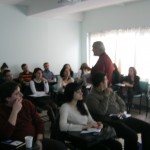 and Storytelling led by Blaine Ray was the next to share their experience. The session holders presented a sample lesson that they had developed during their session. The audience was told what to do when they have got the instructions. The presenter asked lots of questions and acted out the story. The audience responded to the teacher building the story up with the help of the leading questions. The presenter wrote the words/ phrases on the board, used translation and ended the session by summarizing the story.
and Storytelling led by Blaine Ray was the next to share their experience. The session holders presented a sample lesson that they had developed during their session. The audience was told what to do when they have got the instructions. The presenter asked lots of questions and acted out the story. The audience responded to the teacher building the story up with the help of the leading questions. The presenter wrote the words/ phrases on the board, used translation and ended the session by summarizing the story.
 The workshop led by Evelyn Rothstein was called Skills-based teaching- Writing. The presenters started by saying that one can only write about something they know. So they wrote about what they knew about and made the others learn about what they knew. All the students get As, i.e. all of them are successful :).
The workshop led by Evelyn Rothstein was called Skills-based teaching- Writing. The presenters started by saying that one can only write about something they know. So they wrote about what they knew about and made the others learn about what they knew. All the students get As, i.e. all of them are successful :).
One participant wrote a summary of the workshop: I attended the “writing” workshop. In this workshop, we were told about what is necessary before writing a paragraph, how to develop our thoughts in a paragraph (intro-body-conclusion) in an organized way and how to give feedback to students.
Before writing a paragraph, we make a list of items from A-Z related to the topic. Then, when writing a paragraph we start it with an abstract sentence, expand and explain the sentence by making it more concrete, and finish it again by writing an abstract sentence as a conclusion.
To give feedback to the student, we want him to separate the A-4 sheet to 3 columns. In the first column, student writes his paragraph. In the second column, teacher corrects the mistakes and rewrites the paragraph again. In the third column, the student reads and compares the paragraphs and writes the things he learned.
Another workshop was led by Prof. Birsen Tutunis called Training Learners – Learner projects and presentations. The presenters shared what they discussed and the model called K S 4 R, that is: Knowledge, Survey Questions, Recite, Read, Recite, Read.
They gave an example. The topic is Turkish Eurovision Contest History, so they go and research by means of Survey Questions then they recite the information they have worked on, then they read again to refine their research. They also mentioned possible problems and they asked the audience to come up with some solutions.
The next workshop presentation was about Skills-based teaching- Creative Teaching, Listening and Speaking led by Necmiye Karatas.
The presenter mentioned the importance of creative teaching and how our education system which is based on constant testing kills creativity. The presenter asked the audience about decisions and elicited some questions; What should I wear? Should I marry or not?, Career? Food? Then, he asked what the most important decisions are, and elicited some ideas. He asked the audience to imagine themselves as passengers in a spaceship, and that they are leaving the planet and they are going to start a new life. Suddenly, one of the engines is broken. The captain has to decide one of the passengers has to leave and you have to convince that your job is the most important to be able to stay on the spaceship. The presenter asked ‘Does it create interaction and creativity?’
Below is a summary of the session by one of the participans:
The presenter briefed the 20 participants of the workshop by using the slides on the issue of “Creative Teaching” before the group work activity. While
directing this phase of the workshop through a participant-based presentation she used cathetical method for the purpose of an increment in the participants’
knowledge and awareness about the topic. The topics discussed in this part were titled as:
- 1- Creativity in Education
- 2- Creative Thinking
- 3- Brainstorming
- 4- Encouraging students outside of the class
- 5- Using authentic materials
- 6- Increasing intrinsic motivation
- 7- Joy of learning
In the “practice” phase of the workshop four different groups, made up of five participants, were given the topics of “Love / Honesty / Colors / Future” and
they were asked to prepare 5-minute teaching practices by using Creative Teaching Method. The workshop was concluded upon the delivery of the presentations of the each group following the selection of the best one for the overall assessment of the seminar.
The next workshop presentation was on Professional Development- in- Service Training led by Aynur Kesen. They started of with metaphors and the necessity of PD and the kinds of PD. They also asked what goes on in Turkey in terms of PD. The same question was addressed to the audience. In what ways do you want to develop yourself? Some answers were as follows: Teacher training,NLP, more techniques and methods, how to implement technology.
One of the participants of the workshop summarised the session as follows: We came together with 10 people who came from different universities and
institutions. We started discussing the definition of Professional Development. Each participant defined the term “Professional Development” in their own words. Then we commented on ways of Professional Development. For Professional Development, desire and action were found to be essential and crucial. It was also mentioned that we should be very careful about Professional Development because we could be discouraged if we didn’t choose right time and right way for Professional Development. It was also discussed that personal development and Professional Development are quite linked with each other. Each participant expressed in what ways they wanted to develop themselves professionally. Lastly, we talked about why we fail in Professional Development in Turkey. Each participant expressed their ideas on this issue and we finished the workshop.
Anoth er workshop was on Peer Observation called the Nitty Gritty of Peer Observations which was led by Burcu Tezcan-Unal. The presenters started with some metaphors representing the feelings of an observer and the observee in peer observation situations. Amongst many options, they said that they have chosen the photographer for the Observer and the newly weded bride who invited his in-laws to her house for a dinner party first time. They went on listing the topics they discussed like the difficulties and benefits of observations for novice teachers and experienced teachers. Finally, they asked the following questions to the panel:
er workshop was on Peer Observation called the Nitty Gritty of Peer Observations which was led by Burcu Tezcan-Unal. The presenters started with some metaphors representing the feelings of an observer and the observee in peer observation situations. Amongst many options, they said that they have chosen the photographer for the Observer and the newly weded bride who invited his in-laws to her house for a dinner party first time. They went on listing the topics they discussed like the difficulties and benefits of observations for novice teachers and experienced teachers. Finally, they asked the following questions to the panel:
1. When the teaching approaches/beliefs and philosophy of the observer and observee differs, what happens?
2. Should peer observation be voluntary? Should the partners choose who to observe?
Skill Based Teaching – Reading and Vocabulary
One of the participants contributed to the blog with the following summary of this workshop which was led by Prof. Veysel Kılıç. There were 13 instructors of English Language Teaching from various universities in İstanbul in the workshop about effective reading comprehension and vocabulary teaching. After a brief instruction about the basics of the above-mentioned skills by the leader of the workshop, the participants were divided into two groups to discuss the problems regarding reading comprehension and vocabulary teaching and ways to overcome those problems. As for the reading comprehension lessons, the most commonly encountered problem was that the students, in general, are unwilling to read texts and thus to deal with the activities related. As a solution to this problem, the instructors agreed on the idea that the texts should be designed or composed in a way that they fulfill the student’s needs and appeal to their interests.
THANK YOU SO MUCH TO THE COLLEAGUES FROM ISTANBUL BILGI UNIVERSITY AND THE AIR FORCE ACADEMY WHO KEPT GREAT NOTES ABOUT THE SESSIONS FROM THE SYMOPSIUM.
TTEd Istanbul Symposium 2012 ended with a raffle and the participants left with lovely presents for teacher trainers from the British Council and the publishers as well as their certificates of attendance. TTEd SIG coordinator Prof. Birsen Tutunis thanked the presenters for their contribution.

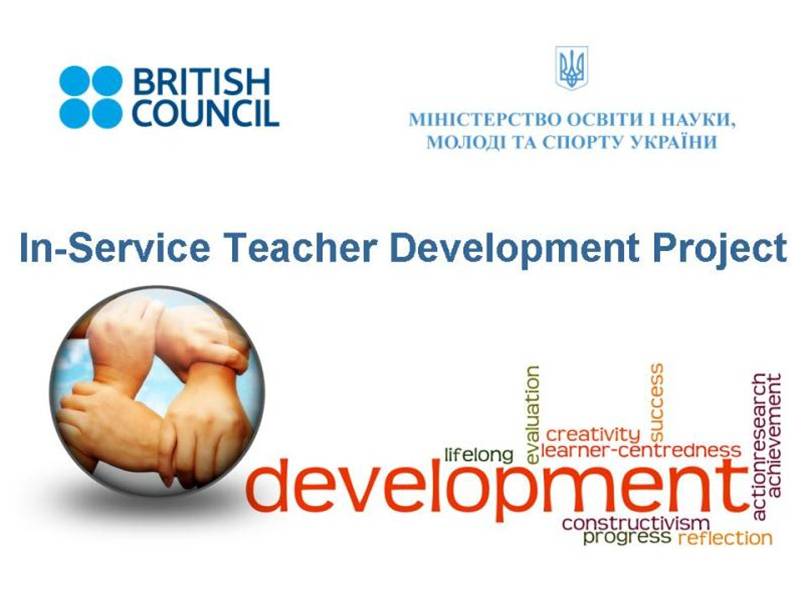

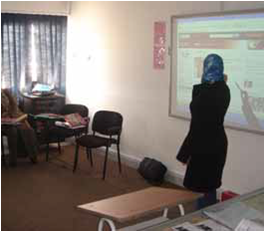
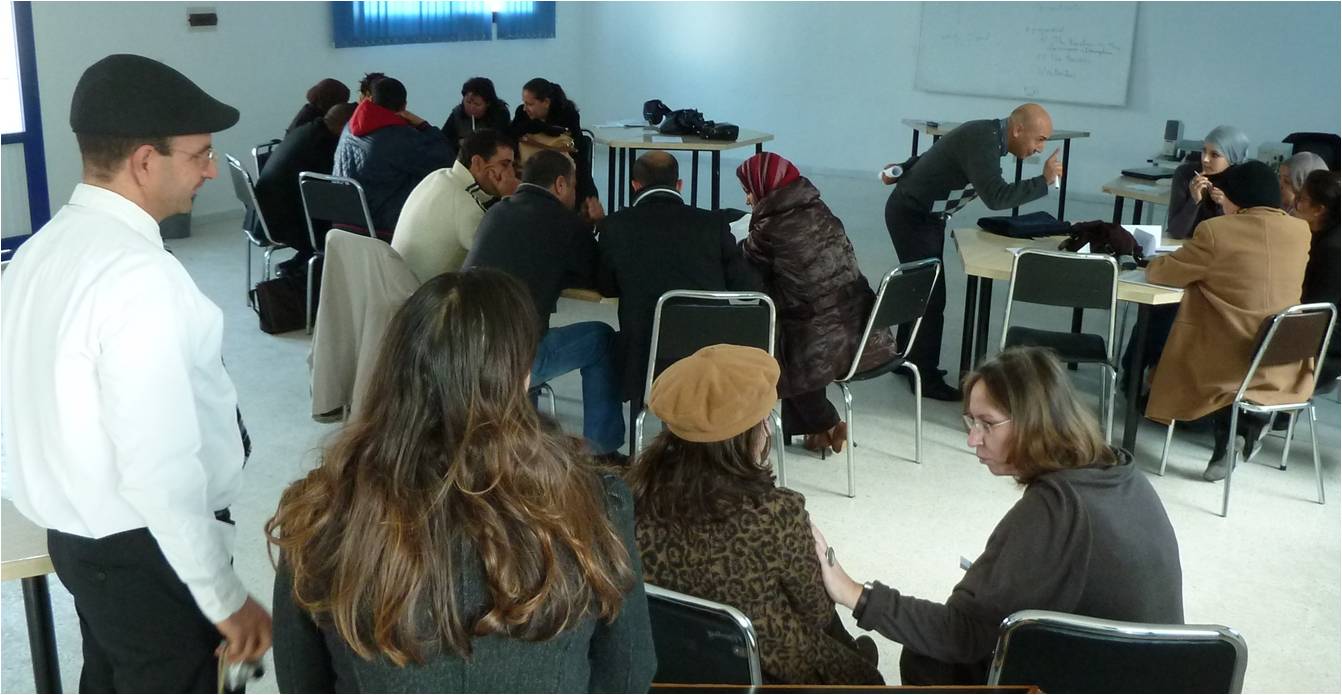

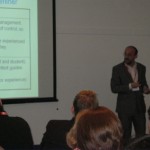
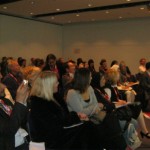
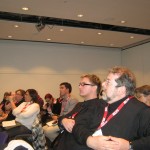
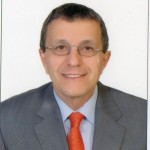

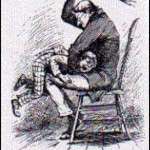










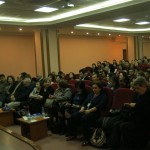


![photo[1]](https://ttedsigevents.edublogs.org/files/2012/02/photo1-1h7a255-150x150.jpg)
